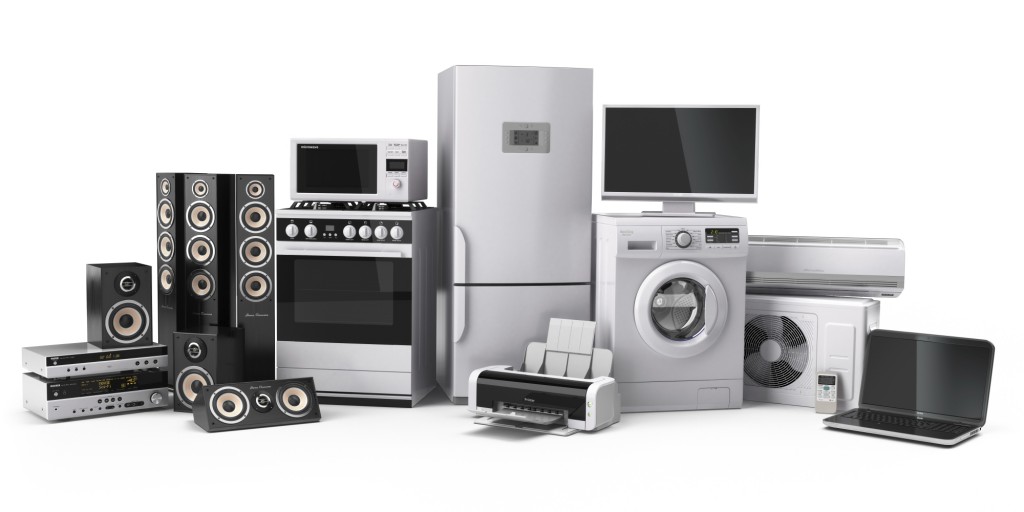Low Scrap Metal Value in White Goods: Key Reasons to Maintain Old Appliance
Old appliances that no longer work like they used to are far too often quickly discarded in favour of newer, better (although this is highly subjective!) models in a seemingly neverending cycle of mass consumerism.
Simply from an economical point of view, oftentimes it’s cheaper to toss away an old appliance and buy a new model than it is to repair it. Sometimes, the opposite is true. This latter, less spoken about ‘rule of thumb’ is the side that big white goods manufacturers don’t want you to consider, but it doesn’t negate the fact that taking care of your appliances is often the right (and cheaper) thing to do.
Is It Worth Scrapping Old Appliances?
White goods often contain significant quantities of scrap metal that have real tangible value. The good news is that these scrap metals can be recycled (good for the environment), but also that a scrap yard will gladly give you cash in hand for these scrap metals. Turn a profit while dumping off old appliances? What’s the catch?
Well, it’s a big stretch to use a word like profit! Big appliances like refrigerators, washing machines, and tumble dryers do contain steel, aluminium, stainless steel and other metals of worth. All said, however, you might only expect a paltry sum at the end of the day, perhaps $5-$20. Appliances that contain copper wiring might bump up the scrap value by a couple of dollars, but getting more than $20 is pretty unrealistic.

Furthermore, it’s important to note that a scrap yard seldom, if ever, will accept junk white goods ‘as is’ and instead will only take the scrap metals contained therein. This means that you will have to harvest all of the scrap yourself, which can be challenging, laborious, and time-consuming. For some appliances like refrigerators, it can even be dangerous due to harsh chemical products contained inside.
Moreover, you’ll need to find a way to safely haul the scrap metals to the scrapyard as well as dispose of the remaining parts (plastic and other non-recyclable components, electronic waste, etc.). All in all, it’s often far too much work for far too little reward.
Electronic Waste and the Difficulty of Recycling White Goods
Another important consideration, especially for newer appliances from the past decade or so, is that of electronics. Old appliances from the 50s and 60s were, for argument’s sake, hunks of steel/iron with no electronic components. Increasingly, manufacturers have gone to great lengths to create smart appliances full of digital technologies.
This poses a problem for appliance disposal, since electronic waste is terrible for the environment and e-waste must be disposed of in a legally compliant and safe manner. Consequently, landfills and tips have begun adding surcharges for e-waste, which means that homeowners looking to have their white goods dumped at the tip can expect to pay more for junk disposal services.
Reasons to Maintain Old Appliances
It is true that appliances contain recyclable parts, and recycling some is better than none at all. Nevertheless, appliance disposal continues to be a big problem for the environment and one that is costing more due to electronic components.
Choose to maintain your old appliances if they aren’t completely broken down and beyond repair. In doing so, you might save some or a lot of money, benefit the environment by reducing waste, and save time and resources from having to remove the appliance, shop for a new one, and have it installed.
Domestic Appliance Repair
Keep your appliances in good working order with affordable services from Domestic Appliance Repair.
Brands & Suburbs We Regularly Service
Bentleigh | Blackburn | Carnegie | Dandenong | Cranbourne | Heatherton | Moorabbin | Asko | Blanco | Bosch | Chef | Dishlex | Fisher Paykel | Abbotsford | Brighton | Cheltenham | Richmond | Windsor | Doncaster | Newport | Windsor | Frankston| Werribee | Ilve| LG | Lofra | Miele | Smeg | St – George | Technika | Westinghouse | Eastern Suburbs | Northern Suburbs | Western Suburbs
